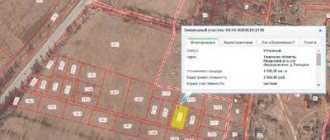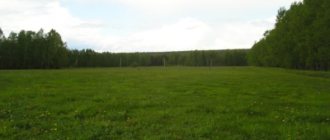rus83FORUMHOUSE Member
We are going to buy a plot of land with a house (dacha). Tell me what to look for, what pitfalls there are.
But you need to buy country real estate with great care, so that, as they say at FORUMHOUSE, “you don’t bite your elbows.” Out of frivolity, you can buy a dacha, which comes with a whole set of restrictions, fines and circumstances that are incompatible with a happy country life. Such negligence can even lead to complete loss of property rights.
Experts from the Federal Cadastral Chamber of Rosreestr have formulated rules that will make transactions with countryside real estate safe.
Buy a dacha only from the owner
This is not even “firstly”, it is “in the main”. A dacha, like any real estate, must be purchased only from the owner.
The right to a house and land is confirmed only by one of the following two documents:
- certificate of ownership
- (or extract from the Unified State Register of Real Estate)
From a legal point of view, these documents have equal value; it’s just that until 2021, ownership was confirmed by a certificate, and later by an extract from the Unified State Register of Real Estate.
KelodFORUMHOUSE Member
Certificates are no longer issued; they have been replaced by extracts from the Unified State Register of Real Estate.
Registration of acquired property
If the parties do not need consent from the buyer’s legal spouse to sign the contract, then such a document may be needed to carry out registration actions.
The Family Code contains several contradictory articles. Paragraph two of Art. 35 of the RF IC, which regulates major transactions of one of the spouses, allows purchases to be made without confirmation from the husband (wife). And paragraph 3 of this article indicates the need for a written document authorizing a legally significant action with a land plot or house.
Important. To register a purchased property, you will need written consent from the second member of the couple. Papers certified by a notary office are valid.
When there is no written confirmation from the second spouse, two scenarios are possible:
- Documents are accepted for work, but with the condition that the registration procedure may be suspended.
- The official of the registration authority approves the transaction, but with the condition that the necessary document is provided within the time period specified by the resolution.
Consent must be notarized
Don't trust and check
You need to get as much information as possible about the object that is selected for purchase. No matter how impeccably honest the seller may seem, you ALWAYS need to double-check what he says and order an extract from the Unified State Register yourself (the law allows you to request an extract about any real estate property in general).
In this way, you can avoid the main danger of buying a property that has already been sold to someone. The seller can provide the buyer with an extract from the Unified State Register of Real Estate, which was received before he sold it to a third party. You should try to get the most up-to-date information; the closer the statement is to the transaction date, the better.
If you need to sell land
When do you need to get permission?
So, when should a seller ask his “other half” whether it is worth concluding a land purchase and sale agreement?
- If the plot was acquired during marriage.
- Unless otherwise specified in the marriage contract.
- If there was no agreement on the division of property.
In all these cases, the spouse’s consent must be written, certified by a notary and presented to Rosreestr to register the transaction.
In what cases is this not required?
But there are also exceptions in which the law does not provide for obtaining consent. These include the following situations:
- When the plot was purchased before the marriage was registered at the registry office. The RF IC clearly states that the rules on common property of spouses do not apply to premarital property.
- When the divorce took place and the property division procedure took place.
- When the plot was acquired during the marriage - but under a gratuitous transaction.
The last one is worth special mention. A gratuitous transaction is a type of legal relationship in which one person transfers property or rights to it to another without demanding anything in return. Classic examples of such transactions would be:
- donation;
- inheritance, etc.
The legislation provides that everything received through gratuitous transactions becomes the property of the spouse who entered into it . However, there are situations when they donate not money, but expensive property (for example, an apartment, cottage or plot).
There are no direct instructions in the law here, but the Plenum of the Supreme Court (SC) of the Russian Federation decided at one time (clause 15 of the Resolution of the Plenum of the Supreme Court of the Russian Federation of November 5, 1998 No. 15) that the proceeds from the sale of such property are also not common property. Consequently, consent to the sale of the purchased plot of land in this case will not be required.
Ignore the gardener's book
IkaRusMosFORUMHOUSE Member
I only have a gardener's book. Is it possible to rewrite the membership book to a new “buyer”, who will himself arrange for privatization of this plot?
The above question from our user describes a common, unfortunately, situation when, instead of a certificate or extract from the Unified State Register of Real Estate, the seller tries to slip in a gardener’s book. The buyer must immediately refuse such a transaction.
A gardener's book is not a document of title and does not confirm ownership of an object.
The buyer can rewrite the book in his name, but this will not make him the legal owner of the purchased dacha.
kOra AllaFORUMHOUSE participant
The neighbors do not have legal rights to the plot, so they cannot register it. The previous owner had no rights to sell it.
Legal regulation
The buyer of the plot should familiarize himself with the norms of the Land Code of the Russian Federation.
The code describes:
- what categories of land exist;
- existing land restrictions and encumbrances (for example, easements);
- procedure for conducting cadastral registration.
The rules for drawing up sales and purchase agreements are enshrined in Chapter 30 of the Civil Code of the Russian Federation.
General provisions on contracts are established in subsection 2 of this code. The main document is Law No. 218-FZ of July 13, 2015 “On State Registration of Real Estate”. The buyer becomes the owner only after the contract is registered with Rosreestr.
The registrar checks whether the parties to the transaction have the right to make a purchase and sale, and may refuse to enter information into the Unified State Register if there are violations of the law.
Take into account the specifics of the dacha
Country real estate has its own specifics and its own pitfalls. In many ways, successfully buying a dacha is much more difficult than buying an apartment. It is imperative to check whether any restrictions are imposed on the site.
Serious restrictions on construction on the site are imposed by the proximity to:
- water protection zones;
- sanitary protection zones;
- industrial zones;
- coastal areas;
- railways and roads;
- Power lines;
- objects of culture.
Kir313FORUMHOUSE Member
I bought a plot for individual housing construction. I ordered a house project. At the same time, I received a GPZU. I received a project for a modern house with a flat roof, a ground floor and two floors. Submitted documents to receive RnS. I began to prepare for construction and dug a foundation pit. The RnS was refused due to the fact that the land is located within the boundaries of a natural-historical landscape and requires approval from the Moscow Department of Cultural Heritage.
RoaromaForumHouse Member
By my standards at that time, I carefully approached the choice of site. I looked at more than a dozen in four places: the money was burning my pocket and it was necessary to start building. As a result, he “came up” - he got the proximity of a grain flow.
For those who plan to buy not just a dacha plot, but a dacha plot with a house, experts advise ordering from the Unified State Register of Real Estate a separate extract for the plot, and a separate one for the house. A lot of useful information can be obtained through the free services of Rosreestr:
- “Reference information on real estate objects online”
- "Public cadastral map".
Briefly about the main thing
There are a number of cases when the consent of a spouse is necessary to purchase a plot of land and vice versa - when the issue can be resolved independently. Basically, it all depends on the presence or absence of a marriage contract.
If the consent of the spouse is necessary, the registrar may accept the documents for processing, but suspend the process itself until a notarized consent is presented.
If the plot was sold without the consent of the spouse, then the fact of sale can be challenged in court - until the statute of limitations expires.
| A little more attention! Write in the comments what you think - does such bureaucracy simplify the life of the average citizen or is it done more for the convenience of public services? |
Ratings 0
Read later
Verify the declared and actual location of objects
The discrepancy between the actual location of objects and the one stated in the documents is the most common problem when purchasing a summer cottage; This happens all the time. The buildings on the site are located in violation of building codes, the fence is placed where it cannot be placed at all, and other issues are fraught with at least scandals, and even legal proceedings with neighbors.
How to avoid this - invite a cadastral engineer and inspect the site with him. Having received information about existing or possible problems, the buyer can calmly weigh the pros and cons and decide whether he needs this headache.
8. Take into account VRI
If the type of permitted use of the site is individual housing construction, then you can safely build a house on it with a foundation and any communications. If the plot is on agricultural land and it is intended “for running a personal subsidiary plot,” a residential building built on it is considered a self-construction – whether it is worth buying is a big question.
A site located within the boundaries of a zone with special conditions for the use of territories is a source of continuous problems. All construction is prohibited on this site; you cannot dig wells or make fires.
Now it is possible to build on dacha plots (category - agricultural, vri - gardening) only if this is allowed by the PZZ.
What do you need to know when purchasing a plot of land from SNT?
Selecting a site for SNT is a very important stage and requires considerable time and
cash costs. Therefore, before purchasing land, you should carefully study the parameters of the future acquisition.
A very important characteristic of a site is its location. So, you should avoid popular destinations, otherwise you will have to stand in traffic jams for many hours to get to your dacha. It is also worth evaluating the possibility of getting to the site by alternative methods - by train or bus.
Another important point is the shape of the site.
If the site has a non-standard shape, this may complicate the construction of a building on it.
Thus, according to fire safety standards, the distance from the edge of the site to the building should be at least 1-5 meters.
If you take the risk of buying land on a slope, you may be subject to flooding every year in the spring. Pay attention to the proximity of railway tracks, power lines, polluted water bodies and landfills. They can significantly spoil the entire impression of being in nature. It is worth making sure that highways, an industrial enterprise or an airport, as well as other objects unfavorable for the environment, will not be built nearby in the near future.
To complete a purchase and sale transaction, the plot must be registered in the cadastral register, and it is also worth checking the land surveying. On site you can make sure that the boundaries are drawn correctly.
If the purchase of land acts as an investment, then it is worth assessing its attractiveness for purchase by the state.
If there is a building on the land, it is worth asking the owners about all its details : the year of construction, the materials used, the degree of wear and possible defects. All this directly affects the price of the house. Thus, the price of a brick house usually starts from 2 million rubles, while a dacha made of timber or a panel structure can cost from 500 thousand rubles. up to 1.5 million rubles
In some cases, you should not skimp on the services of a professional appraiser, who will be able to point out to you all the existing shortcomings of the building, which can entail considerable financial costs.
He will also conduct an examination of communication networks.
As a result, the appraiser will indicate a fair price for the site and protect you from overpaying.
It’s worth talking to your neighbors in the country. They can point you to some
shortcomings or nuances that you did not pay attention to.
It would be nice to get to know the SNT board. Here you can find out if the current owner has any debts to make mandatory payments to the garden partnership. Also ask for the procedure for joining the partnership.
It is also worth finding out whether there are any lawsuits regarding the land being purchased. The district court may provide such information.
Parents are usually interested in the question of what documents are needed to register a newborn child. Do you want to rent land from the administration with the right of subsequent purchase? A step-by-step algorithm for this procedure is described here.
Do you want to give a relative a valuable gift in the form of land? All features are described in our article.
Legislation
Chapter 30 of the Civil Code describes the regulations for carrying out purchase and sale transactions, the rules for drawing up an agreement and the documents required for this.
The nuances of buying and selling real estate are set out in paragraph 7 of this chapter.
Particular attention should be paid to Article 551 of the Civil Code, which establishes
mandatory state registration of such transactions, as well as Article 552 of the Civil Code, which establishes the transfer of the right to own land upon the sale of a building located on it.
Article 556 of the Civil Code, which establishes the obligation to draw up a transfer deed, is also important.
The provisions of the Civil Code on transactions (Chapter 9) and contracts (Chapter 27-29) are also relevant.
Article 37 of the Land Code imposes additional requirements for the sale of land.
In particular, this regulatory act prohibits the sale of plots that have not undergone cadastral registration, as well as the sale of plots under conditions limiting further resale, rental and other forms of transactions.










